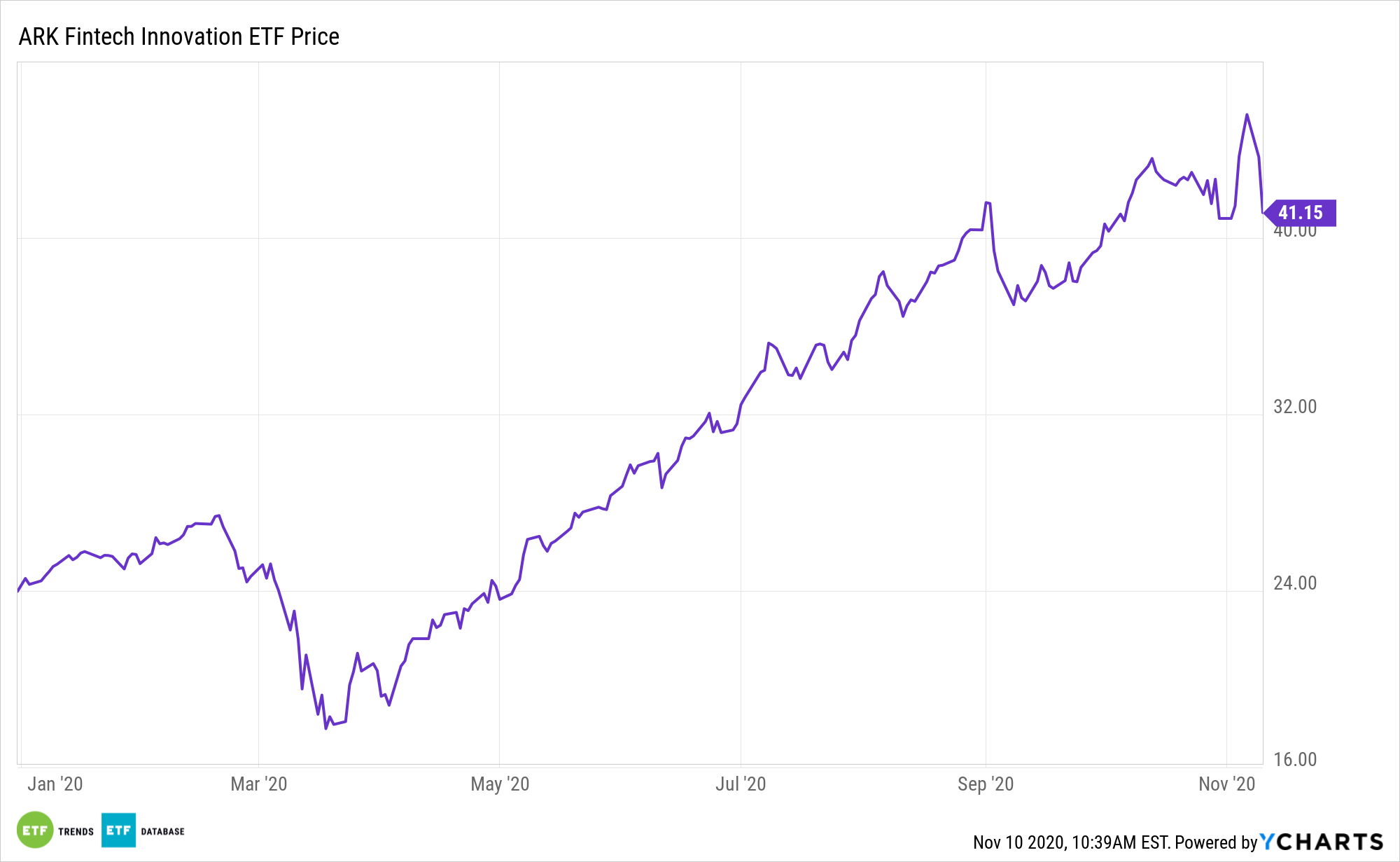With it clear that Joe Biden will become the 46th president, investors’ attention now turns to more refined segments of the market that could benefit under the new administration. Fintech is on that list, according to some market observers, and that should benefit the ARK Fintech Innovation ETF (NYSEARCA: ARKF).
ARKF invests in equity securities of companies that ARK believes are shifting financial services and economic transactions to technology infrastructure platforms, ultimately revolutionizing financial services by creating simplicity and accessibility while driving down costs.
“As the impact of the coronavirus pandemic threatens to increase the number of unbanked households in the country, the push for alternative banking solutions could get a boost under a Joe Biden presidency — and that’s a good sign for fintechs, some experts said,” reports Banking Dive.
Traditional Finance Faltering
Whether it’s lending, payroll, or cashless payments, ARKF components are at the center of a groundswell that’s dramatically altering the financial services landscapes, leaving many old guard institutions in the dust. The retail payments space is a universe in which many ARKF holdings are already thriving at the expense of traditional banks. There are other reasons ARKF could be a Biden winner.

“The Democratic Party has long backed initiatives focused on financial inclusion, including calls to reestablish postal banking and create public banks. Financial inclusion is also a mission often touted by most fintechs,” according to Banking Dive.
ARKF’s digital wallet exposure also some potentially beneficial political implications.
“Given ARK’s estimate of 220 million digital wallets in the US by 2024, if every user were to be valued according to the lifetime value of traditional bank customers, the digital wallet opportunity could be worth more than $800 billion,” according to ARK.
Digital wallets jibe with the objective of bringing banking services to the millions of Americans that are unbanked.
“While the number of banked households in the U.S. has trended upward in recent years, the impact of the coronavirus could likely reverse that trend, according to a recent report by the Federal Deposit Insurance Corp. (FDIC),” reports Banking Dive. “Fintechs such as challenger banks and peer-to-peer payments companies often tout their nontraditional methods of providing financial services that often come with fee-free accounts and alternative methods for checking credit.”
For more on disruptive technologies, visit our Disruptive Technology Channel.
The opinions and forecasts expressed herein are solely those of Tom Lydon, and may not actually come to pass. Information on this site should not be used or construed as an offer to sell, a solicitation of an offer to buy, or a recommendation for any product.

